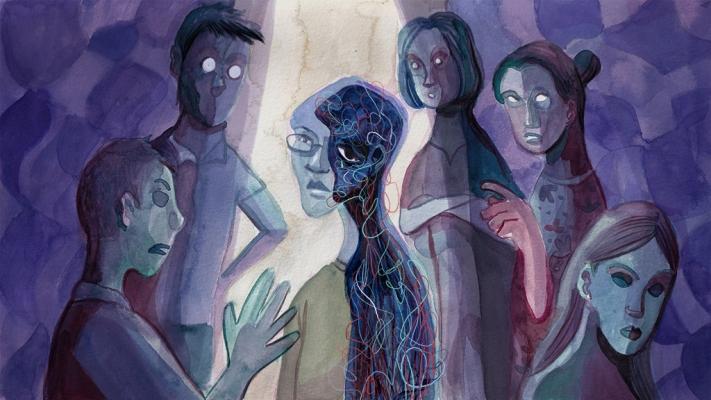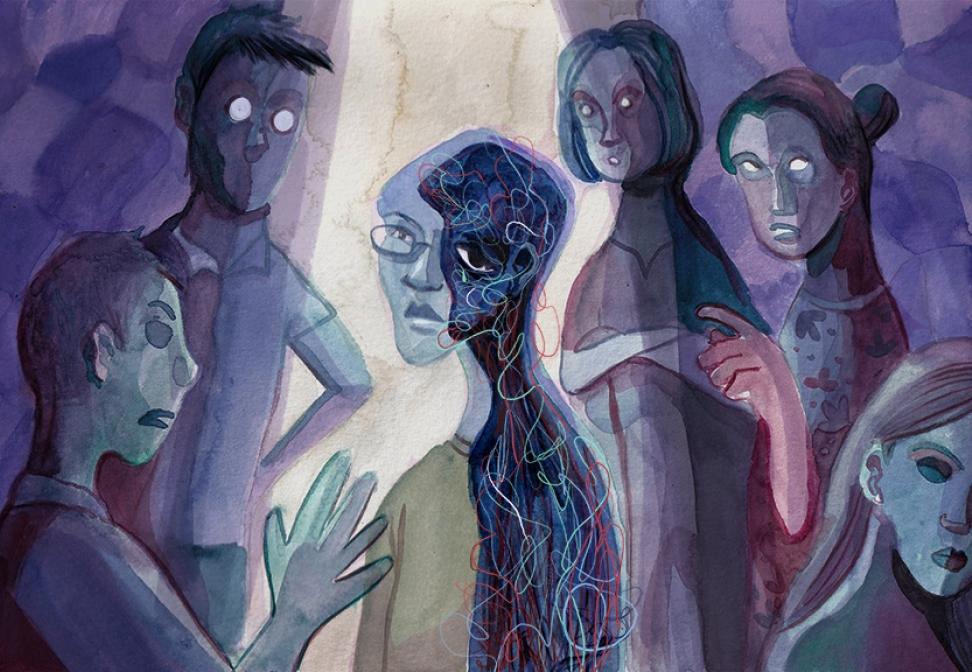Somedays, I Think of Suicide
Faced with traumatic experiences growing up, Songwen started having suicidal ideation. He shares how he copes with his suicidal thoughts.
My story has nothing to do with physically attempting it, but rather stopping myself from following through suicide ideation.
Suicide ideation, also known as suicidal thoughts, refers to the process of thinking of planning to carry out suicide. It is not to be mistaken as attempted suicide, where the person follows through the plan.
During moments of dread, anxiety, depression and the myriad of negative emotions on a daily, constant basis, whenever it peaks, suicide ideation also peaks.
Suicide ideation isn’t something I’m proud to share, but speaking about it and coming to terms that it’s part of me, and has been with me since the trauma that caused it, does help me prepare for when it comes about.
My own experience stems from abandonment, physical and mental suffering through National Service. Having gone through a sudden break-up, and within months going through National Service, the toil on both my body and mind caused me to have frequent breakdowns. I was seen by a psychiatrist who told me that if I was lying about my condition, I would be thrown into Detention Barracks (army prison), which left me feeling threatened and traumatised.
I was 48kg heavy, 177cm tall when I entered the army for training. One would expect me to not be physically capable of keeping up with the rest when it comes to physical training, but the system is relentless. This persisted for about a year or so with less and less support from the people and organisations around me. This was when where suicide ideation began for me.
Medication that reduces the aforementioned sufferings also robs me of any sense of purpose and fulfilment in going about daily routines of my life, and so through talks with my former psychiatrist, my prescription was removed.
Everybody can imagine and empathise with the pain a person goes through when they encounter physical trauma, while nobody cares to realise that mental, emotional and psychological suffering also exists.
People who suffer from mental, emotional and/or psychological trauma, and end up having suicidal ideation, tend to have suffered constantly for a prolonged period of time.
As such suffering can’t be determined through data and numbers, or physical anomalies, many people dismiss it when sufferers confide in their loved ones.
Oftentimes, these moments tend to be brushed off, and I have had many moments of being ostracised, ridiculed for my weak mental state, and selfishly berated for choosing the ‘easy way out’. It is no different from kicking someone when they are down and out, and reinforces the idea that there isn’t anybody who is truly there to understand, or even try to. No proper, consistent support was given during those moments.
People can understand brief moments of grief, loss, and pain; yet can’t tolerate when others are not able to pick themselves back up as quickly or as well as most. Even mental healthcare workers can easily get carried away with intolerances on their part when sufferers go to them for help. I know that from personal experience. Empty words do nothing to help, especially when action does not follow through.
Strong logic has been the boon and bane of my life. On one hand, it has helped me in many problem-solving situations, developing empathy towards others, and changing my perspectives of others who lead different lives from me. On another hand, this logic also reinforces the negative effects of trauma, society on the whole letting me down, and not having real support. If I cannot heal from my suffering, what better way than to remove myself from suffering any further by suicide, I frequently wonder.
Suicide ideation has been a part of my life, and will always be until a constant and consistent structure of love and support is present. Every waking moment has a rough percentage tacked onto it. On good days, it feels 10%; on most days, it’s 20-30%. On rough days, it hits 70-80%. In moments that trigger mental breakdowns, it hits 110-140%.
During such moments, I have to stop myself from moving in order to not proceed with stopping the pain permanently. This usually involves a lot of quiet crying, curling up like a ball for hours at end, and constant shaking. The aftereffects of these breakdowns persist for days at end, up to 3 weeks.
Hobbies and interests take up most of my coping mechanisms. This resulted in rotating multiple hobbies – I dabble in video games, watching anime, building PCs, read up on technology on the whole, practice martial arts, learn street latin dances, build model kits, among others. These hobbies reduce my interaction with other people, or they provide some physical connection to substitute the love and support I need. And having this many hobbies takes away my desire for suicide.
Having been single since the trauma that triggered it, and a really brief long distance relationship that ended up being cheated upon, I can only rely on luck to guide me to the love and support I need to gradually heal.
Illustrator: Xiao Yan








